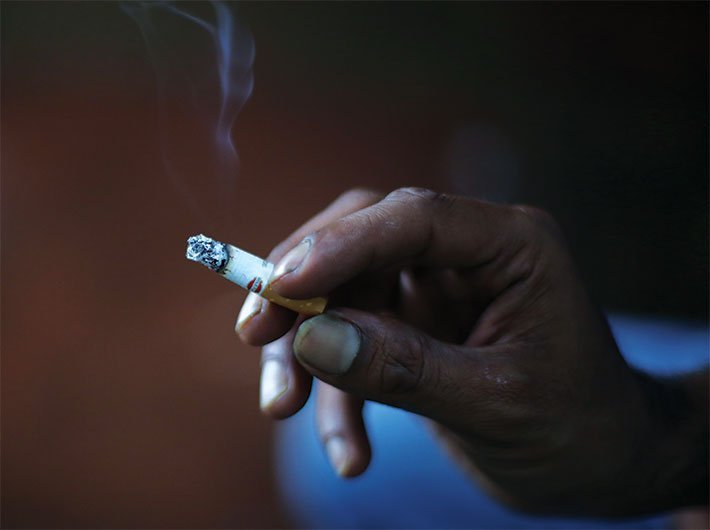Amid media reports of adverse comments by the Intelligence Bureau (IB) on “adverse economic impact” of the anti-tobacco campaign, Dr Kailash Sharma, director (Academics) of Tata Memorial Hospital, has written a letter to the home minister with a copy to the prime minister, health minister and national security advisor. He has pointed out that the national and international community was appalled to read in media that an IB report portrayed India’s success in controlling tobacco as a threat to the nation.
The IB report, as quoted in a media report, says restrictions on tobacco use in India would encourage consumption of more injurious toxicants like alcohol and narcotics. It also highlights “adverse economic impact on 3.5 crore persons of the forced closure of tobacco-related farming/industry”.
June 2 health minister JP Nadda released a report that showed 17% relative decrease in tobacco consumption in India between 2010 and 2016. The maximum decrease (54%) in consumption happened in the age group of 17 to 17 years. In absolute numbers, the government’s campaign saved 81 lakh Indians from picking up the lethal habit. The report also showed that the new set of gory pictorial warnings had significantly contributed to this decline.
While celebrations were still not over, an IB report of the home ministry apparently labelled the achievements of the government as the result of an “international conspiracy” to cause economic instability in India.
Dr Sharma’s letter questions the use the phrase ‘anti-tobacco lobbying’ in a negative sense when it actually saves lives. Needless to say that this ‘lobbying’ is in complete synchrony with the government’s own agenda, he points out. While the tobacco industry lobbies to enhance its business, public heath activists are lobbying to save disease, death and deprivation. Towards this, the alleged IB report conveniently ignores certain facts, the letter says. The global tobacco cigarette industry has also hugely invested in India’s cigarette companies. India’s tobacco industry has consistently challenged the national tobacco control policy in several courts by engaging some of the most expensive advocates. It is well known that, tobacco lobby works systematically to dilute or delay tobacco control policies to enhance their business.
The letter also questions the logic of supporting livelihood of 3.5 crore people by letting 12 lakh innocent Indians die every year. The letter mentions that net revenue from tobacco is only 17 percent of the loss from Tobacco.
Dr Sharma also speaks of the strong anti-tobacco sentiments messages of prime minister Narendra Modi.
In 2015, on May 31 – World No Tobacco Day, PM had said in a message that this day reminds us of the harms associated with tobacco consumption and it is a day to reaffirm our commitment to reduce this menace. His message to nation on May 31, 2014 was equally encouraging: “On World No Tobacco Day, let’s pledge to spread awareness on the risks of tobacco consumption and work to reduce tobacco consumption in India. Tobacco not only affects those consuming it but also people around. By saying no to tobacco, let us lay the foundation of a healthier India.”
The letter concludes by urging the home minister to investigate if the IB report was instigated by the tobacco lobby to derail the efforts of government of India and tarnish the nation’s image internationally.
Tata Memorial, a leader in cancer treatment and also in anti-tobacco campaign, is run under the department of atomic energy, the government of India.
Read the full letter here.
Also read:
The Governance Now cover story on the anti-tobacco campaign:
Deadly smoke signals
http://www.governancenow.com/views/columns/deadly-smoke-signals-tobacco-insurance-firms-addiction-smoking
The lady fights baccy: a profile of Sumitra Hooda Pednekar, an unsual fighter
http://www.governancenow.com/news/regular-story/the-lady-fights-baccy
“How can an insurance firm promote death?”: An interview with Dr Pankaj Chaturvedi of Tata Memorial Hospital
http://www.governancenow.com/views/interview/how-can-an-insurance-firm-promote-death-pankaj-chaturvedi
